Govt sometimes failed to protect press freedom
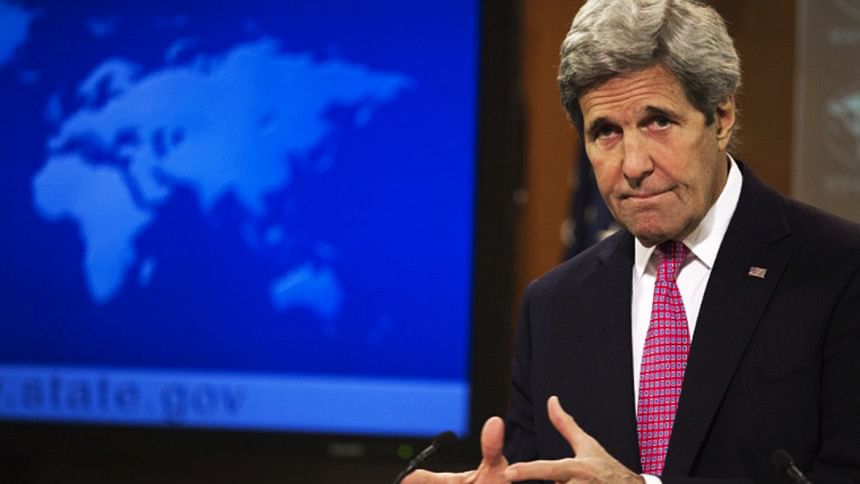
The Bangladesh government has "sometimes failed" to protect the freedom of speech and media, the US has said in its Country Reports on Human Rights Practices for 2015.
"The constitution provides for freedom of speech and press, but the government sometimes failed to respect these rights," said the report released on April 13 in Washington DC by Secretary of State John Kerry.
"There were some limitations on freedom of speech. Some journalists self-censored their criticisms of the government due to harassment and fear of reprisal.
"The independent media were active and expressed a wide variety of views; however, the media outlets that criticised the government experienced negative government pressure.
"For example, independent journalists alleged that intelligence services influenced media outlets in part by withholding financially important government advertising and pressing private companies to withhold their advertising as well."
The report says "authorities" instructed a Bangladeshi cell-phone carrier and other corporations not to advertise in "two leading newspapers".
Asked to comment, Home Minister Asaduzzaman Khan Kamal told The Daily Star that the report on Bangladesh was “not based on facts”. But he declined to elaborate.
CONTROL OVER SECURITY FORCES
The US report claims the Bangladesh government has "failed at times to maintain effective control over security forces."
The government has mechanisms to investigate and punish abuse and corruption within the security forces. However, these mechanisms were not regularly employed, it continues.
"The government took steps to improve police professionalism, discipline, training and responsiveness and to reduce corruption. Police basic training continued to incorporate instruction on the appropriate use of force as part of efforts to implement community-based policing.
"Despite such efforts, security forces, including the RAB, continued to commit abuses with impunity. Plaintiffs were reluctant to accuse police in criminal cases due to lengthy trial procedures and fear of retribution. Reluctance to bring charges against police also perpetuated a climate of impunity."
Describing extrajudicial killings, forced disappearances and killing of secular bloggers as the "most significant human rights problem in Bangladesh", it says the government took "limited measures" to investigate and prosecute cases of abuse and killing by security forces.
The report identifies murder of others by groups espousing extremist views, early and forced marriage and gender-based violence, and poor working conditions and labour rights as serious human rights problems in Bangladesh.
Other human rights problems include torture and other abuse by security forces, arbitrary arrests and detentions, "weak judicial capacity and independence", and lengthy pre-trial detentions, according to the executive summary of the report's Bangladesh part.
"Weak regard for the rule of law not only enabled individuals, including government officials, to commit human rights violations with impunity but also prevented citizens from claiming their rights."
Some nongovernmental organisations (NGOs) faced continued legal and informal restrictions on their activities, the report adds.
"Women and girls suffered from unequal treatment. Many children were compelled to work, primarily in the informal sector, due to either economic necessity or, in some instances, trafficking."
Instances of societal violence against religious and ethnic minorities persisted, although many government and civil society leaders claimed these acts had political or economic motivations and should not be attributed wholly to religious beliefs or affiliations.
Discrimination against persons based on their sexual orientation continued, says the US yearly report.
The report observes a substantial backlog of cases hindered the court system and "the granting of extended continuances effectively prevented many defendants from obtaining fair trials due to witness tampering, victim intimidation, and missing evidence".
INDIGENOUS RIGHTS
The indigenous people from the Chittagong Hill Tracts were unable to participate effectively in decisions affecting their land due to disagreements regarding the structure and policies of the land commission, the US report says.
"Strict security measures prevented some indigenous individuals and activists from combating discrimination.
"Indigenous persons also suffered from societal violence, including rape and killing. This violence was sometimes associated with land grabbing."
'GLOBAL GOVERNANCE CRISIS'
The annual human rights report covers internationally recognised civil, political, and worker rights, reflecting those set forth in the universal declaration of human rights and international agreements.
"The 2015 edition of the Country Reports on Human Rights Practices points to a global governance crisis," Secretary Kerry said in a statement issued along with the report.
"In every part of the world, we see an accelerating trend by both state and non-state actors to close the space for civil society, to stifle media and Internet freedom, to marginalise opposition voices, and in the most extreme cases, to kill people or drive them from their homes."
The US is opposed to the use of torture in any form at any time by any government or non-state actor, he stated.
"The contents of this report renew our commitment to promoting and protecting universal human rights, to supporting and defending civil society in its peaceful efforts to hold governments accountable, and to working with our partners to advance peace, development, human rights, and democracy."

 For all latest news, follow The Daily Star's Google News channel.
For all latest news, follow The Daily Star's Google News channel. 

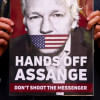

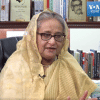
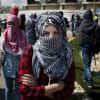
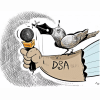


Comments